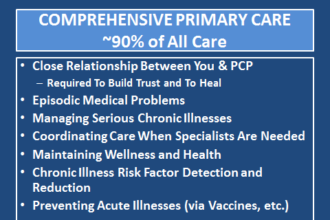For the first time in 30 years, an expert panel has updated guidelines for the diagnosis of Alzheimer’s disease. The long overdue facelift should favorably impact care for millions and accelerate badly needed research on the disease.
For the first time in 30 years, an expert panel has updated guidelines for the diagnosis of Alzheimer’s disease. The long overdue facelift should favorably impact care for millions and accelerate badly needed research on the disease.
The guidelines were produced by representatives from the National Institute on Aging and the Alzheimer’s Association. They portray Alzheimer’s for the first time as a three-stage disease. In addition to ‘Stage 3,’—the full-blown clinical syndrome that had been described in earlier versions of the guidelines—the new guidelines describe an earlier ‘Stage 2,’ of mild cognitive impairment due to Alzheimer’s, and a ‘Stage 1, or preclinical’ phase of the disease. The latter can only be detected with biochemical marker tests and brain scans.
 The guidelines legitimize years’ worth of observations by the family members of Alzheimer’s patients, who recognize in retrospect that Grandpa had a slowly progressive cognitive disorder long before he was diagnosed. The guidelines also reflect progress on the research front, where it has now been established that the disease begins years before patients become symptomatic.
The guidelines legitimize years’ worth of observations by the family members of Alzheimer’s patients, who recognize in retrospect that Grandpa had a slowly progressive cognitive disorder long before he was diagnosed. The guidelines also reflect progress on the research front, where it has now been established that the disease begins years before patients become symptomatic.
Alzheimer’s patients and their families, and the teetering US health system that supports them, would have been better served by the publication of these guidelines 2-3 years ago.
The science was compelling enough back then, and a 2 to 3 year lead-time on research could have had an enormously positive impact on our economy and our health system. In a report last summer for example, the Alzheimer’s Association concluded that unless disease-modifying treatments are found quickly, the number of Americans with Alzheimer’s disease will jump from 5.1 million to 13.5 million by 2050. The total costs of caring for these folks will have exceeded $20 trillion, in today’s dollars, by then. A lions’ share of these expenses will be borne by government entitlement programs, Medicare and Medicaid.
The New Guidelines Will Improve Care
Meanwhile, several commentators have criticized the new guidelines as confusing and stress-provoking. ‘Why should we rush to tell people they have something we can’t treat?’ is the crux of their argument.
These people have it wrong. Denial is not the way to go with Alzheimer’s. The sooner patients and their families find out they have it or are at risk to develop it, the more time they have to develop care plans that reflect their preferences. Mildly affected individuals get to decide for themselves how to enjoy what may be a limited number of years-worth of relatively unimpaired mental functioning. They also get to decide whether to participate in clinical trials and which ones to participate in. They and their families can access counseling and support groups more quickly, a benefit that can improve the quality of life for everyone involved. Even providers themselves can use the enhanced lead-time to implement a patient support plan that respects the needs of the patient and his family.
Today, full-blown Alzheimer’s affects 5.1 million Americans. In all likelihood, at least that many have mild cognitive impairment due to Alzheimer’s (the new ‘Stage 2′). These are the people that will benefit immediately by the expanded definition.
The New Guidelines Will Improve Research
By formally recognizing that Alzheimer’s is slowly progressive and establishing criteria for each stage of the disease, the guidelines facilitate scientific inquiry into various diagnostic and therapeutic options. They allow patients to be grouped by stage of illness (a breakthrough similar to what tumor staging has done for cancer research). Most importantly, they encourage patients to enter clinical trials at a time in the natural history of their disease when treatment success is more likely.
These principles underlie treatment strategies for myriad medical conditions ranging from cancer to cardiovascular disease. The rationale behind mammography for example, is to detect cancer at an earlier stage when treatment is more effective.
The new guidelines cite biomarkers as a key to future research on Alzheimer’s. Biomarkers have the potential to provide objective information that could help diagnose and assess the severity/progression of the disease. This would be a vast improvement over the current approach which relies on clinical judgment.
To be sure, the state-of-the-art in Alzheimer’s biomarkers isn’t ready for prime time right now. Scientists haven’t standardized the tests used to measure biomarkers yet, nor have they decided what the cutoff point should be for a normal result. But there is reason to hope these are solvable problems.
Conclusion
In sum, the new Alzheimer’s diagnosis guidelines will improve care by providing valuable lead time for all stakeholders involved with the disease. On the research side, the guidelines are essentially a bet. We’re betting we can make a positive impact on Alzheimer’s treatment by creating a more robust platform for research. With the enormous amounts of money being spent on Alzheimer’s care each year and a possible epidemic of Alzheimer’s in our lifetime, this is a bet that we should have placed years ago.
Better late than never.







